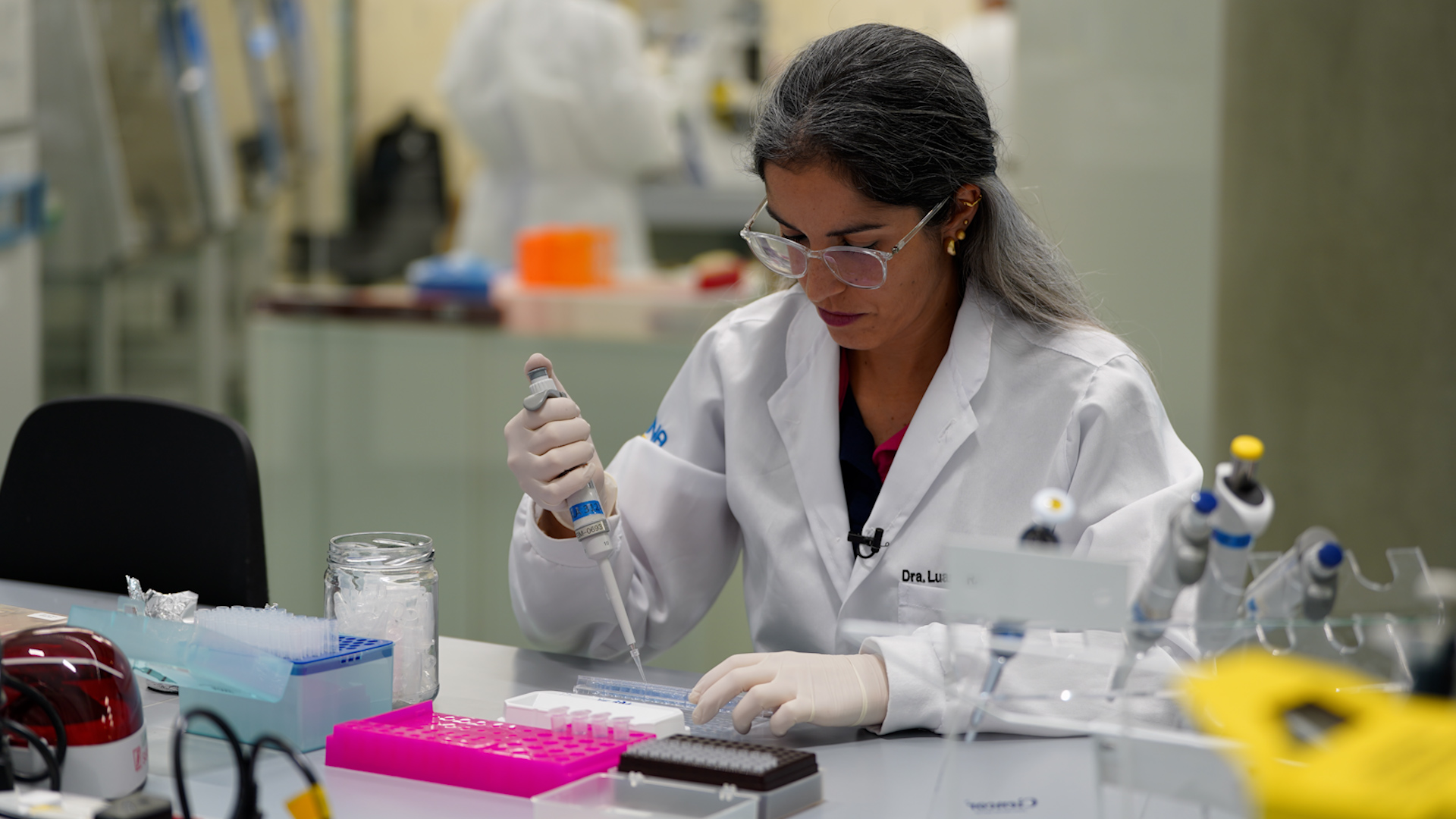

A recombinant protein called Terah-7 activates the immune system in both animal and human cells and causes tumors in experimental animals to regress (photo: Daniel Antônio/Agência FAPESP)
With support from FAPESP, the São Paulo startup has developed a molecule that can stimulate the immune system to fight cancer caused by the human papillomavirus; the technology will be presented at the VivaTech fair in Paris.
With support from FAPESP, the São Paulo startup has developed a molecule that can stimulate the immune system to fight cancer caused by the human papillomavirus; the technology will be presented at the VivaTech fair in Paris.

A recombinant protein called Terah-7 activates the immune system in both animal and human cells and causes tumors in experimental animals to regress (photo: Daniel Antônio/Agência FAPESP)

By Elton Alisson | Agência FAPESP – Diseases caused by the human papillomavirus (HPV), such as cervical cancer, may have a new treatment option thanks to a technology developed by researchers at ImunoTera Soluções Terapêuticas, a São Paulo startup incubated at Eretz.bio, the biotechnology startup hub at Albert Einstein Jewish Brazilian Hospital.
The scientists have developed a therapeutic vaccine based on a recombinant protein called Terah-7, which is capable of stimulating the immune system to fight cancer caused by HPV.
Supported by FAPESP’s Innovative Research in Small Businesses Program (PIPE), ImunoTera was one of ten companies invited by the Foundation to present at the University of São Paulo (USP) stand at the VivaTech international fair, one of Europe’s largest technology and startup events. The fair takes place from June 11th to 14th in Paris.
The theme of VivaTech 2025 is the new frontiers of technological innovation from economic, geopolitical, social, and environmental perspectives. Last year, 165,000 people visited the various stands at the fair.
“Participating in this fair represents an opportunity to internationalize our technology by putting us in contact with investors and potential international partners who can help us bring other immunotherapies we’re developing to fruition,” said Luana Raposo de Melo Moraes Aps, founding partner and executive director of ImunoTera, in an interview with Agência FAPESP.
“We developed a therapeutic vaccine platform from this molecule that can be adapted to treat other diseases, such as prostate and breast cancer. We also have other immunotherapies in our pipeline, including those for Zika, dengue, and chikungunya,” says the researcher.
The molecule was discovered during Aps’s PhD and postdoctoral projects with her two other partners at the Biomedical Sciences Institute at the University of São Paulo (ICB-USP). Over the past few years, it has undergone several improvements to achieve an optimized version. Through in vitro tests with animal and human cells, as well as in vivo tests with experimental animals, the researchers found that the molecule can regress tumors or diseases associated with HPV and prevent recurrence and metastasis.
“We realized that the molecule can activate the immune system in both animal and human cells, as well as regress tumors in experimental animals,” says Aps.
“Another discovery during these trials was that the molecule exhibits synergism with chemotherapy, which is the standard treatment for cervical cancer caused by HPV,” says the researcher.
The molecule was also tested on patients in studies conducted at the ICB-USP and the Hospital das Clínicas, a hospital complex administered by the USP Medical School. The results revealed that the recombinant protein can activate the immune systems of patients diagnosed with cervical neoplasms and regress lesions in most patients.
“With these results, we were able to improve the molecule. Today we have an optimized version of it, which is more effective and has a higher yield, and we’re ready to continue the regulatory journey and conduct clinical studies in patients,” says Aps.
Technology transfer
The development of a biological product, such as the one being developed by ImunoTera, is complex in terms of both regulatory certifications and technological challenges. “Today, we expect to finish non-clinical toxicity studies by 2027, so that we can begin clinical studies to confirm the safety and efficacy of the therapeutic vaccine in patients with cervical neoplasms,” explains Aps.
At the end of this process, the researchers intend to license and transfer the technology, preferably to a multinational pharmaceutical company that can produce and market the molecule on a large scale.
“We see that there’s a global market to be explored with this molecule. Therefore, our initial idea is to transfer the technology. To do so, we need to at least prove its safety and efficacy in clinical studies.”
Republish
The Agency FAPESP licenses news via Creative Commons (CC-BY-NC-ND) so that they can be republished free of charge and in a simple way by other digital or printed vehicles. Agência FAPESP must be credited as the source of the content being republished and the name of the reporter (if any) must be attributed. Using the HMTL button below allows compliance with these rules, detailed in Digital Republishing Policy FAPESP.





